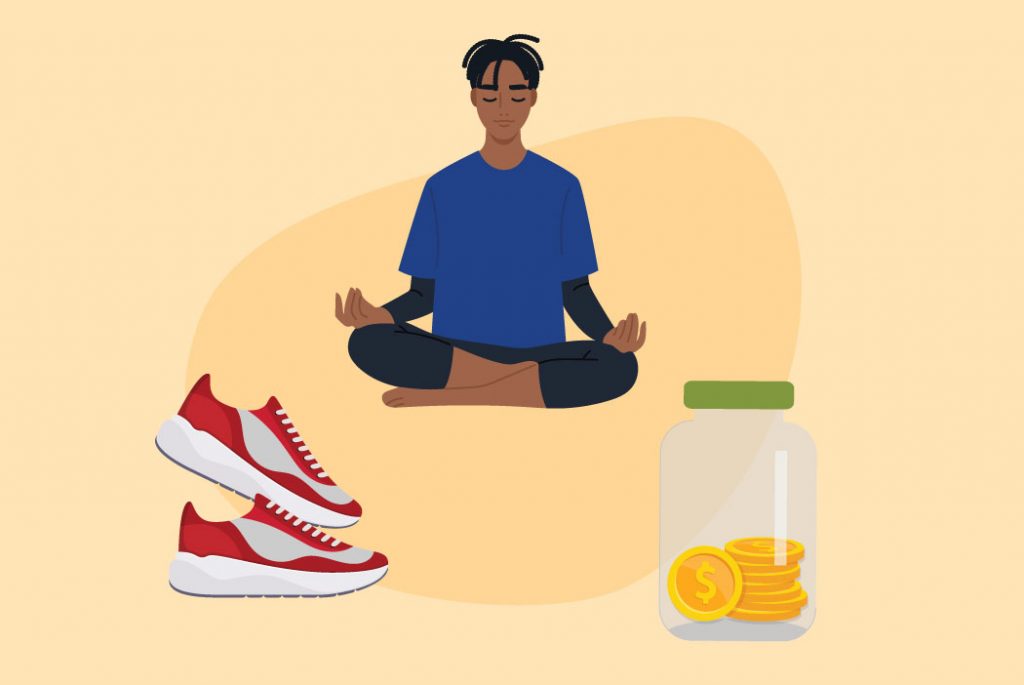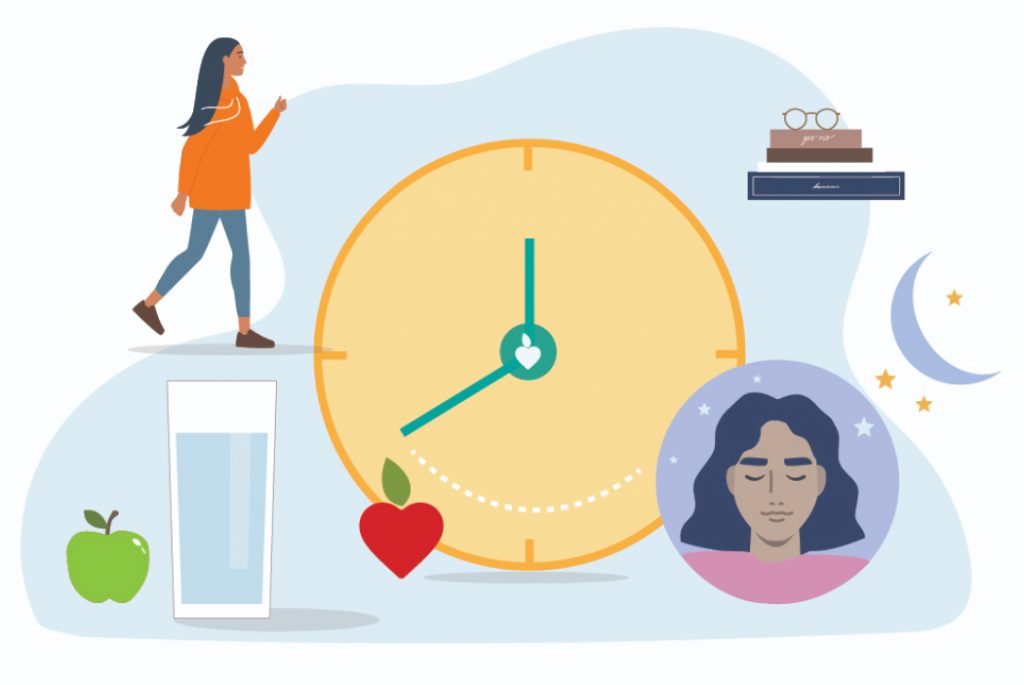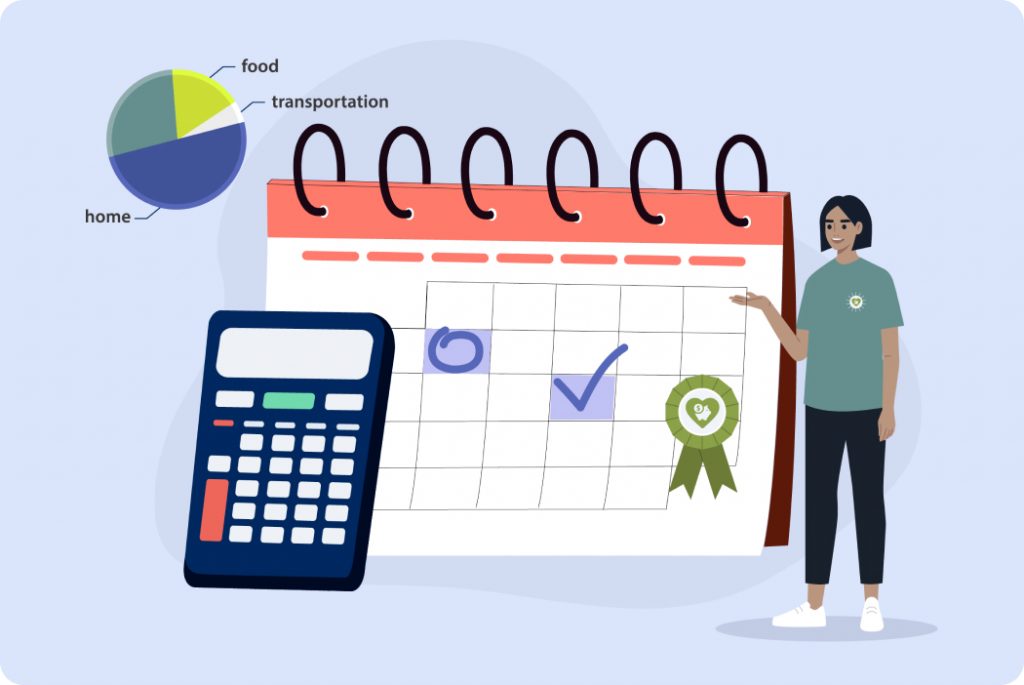Welcome to Well-being Challenge #4!

Choose one or more ways to improve your emotional, financial or physical well-being:
Start each day with a positive affirmation.
Positive affirmations are short, encouraging statements you can say to yourself to help you overcome doubt and improve your self-confidence. They can be about a positive quality or trait you see in yourself or a choice you’ve made or are making that you’re proud of. Research has shown that saying positive affirmations reduces stress, increases well-being and makes you more open to making changes in your life.
You can say your affirmations out loud, in your head or write them down. Make them as specific as possible, for example, “I am strong,” “I can do hard things,” “I did great work this week.” With repetition, these positive phrases can reshape how you think and feel about yourself, improving your relationship with yourself and others.
Add 5% of each paycheck to an emergency account.
An emergency account is money you set aside for unexpected expenses, such as car repairs, a big rent increase or fixing a leaky roof. This money gives you peace of mind, knowing you can cover whatever surprises come your way. And it keeps you from having to use a credit card for emergencies so that you don’t have to pay interest on them for months.
Aim to save three to six months of expenses to fully fund your emergency account. To figure out that amount, look at your bank account to see what you usually spend in a month. Multiply that figure by three or six. Then start funding the account with 5% of each paycheck to build it over time. And make sure to keep your emergency money in a savings account, money market account or online bank where it’s easily accessible.
Increase your step count by 1,000 steps per day.
A recent study reported by the New York Times showed that walking 4,000 steps a day, or for 30–45 minutes, can reduce the risk of dying from cardiovascular disease. It also found that the more steps you take, the better off you are — mortality risk decreased by 15% with every additional 1,000 steps people took.
Increasing your daily step count is easy. You can go for a stroll around the block after you get your mail. Chase your kids around at a park. Get off the bus a stop early. Or take a walk while you talk on the phone — a 20-minute phone call could take between 1,200 and 2,000 steps! If you have one, carry a smartphone with a step tracking app or a fitness tracker to record your steps. And be sure to listen to your body. Set a goal and do your best every day.




